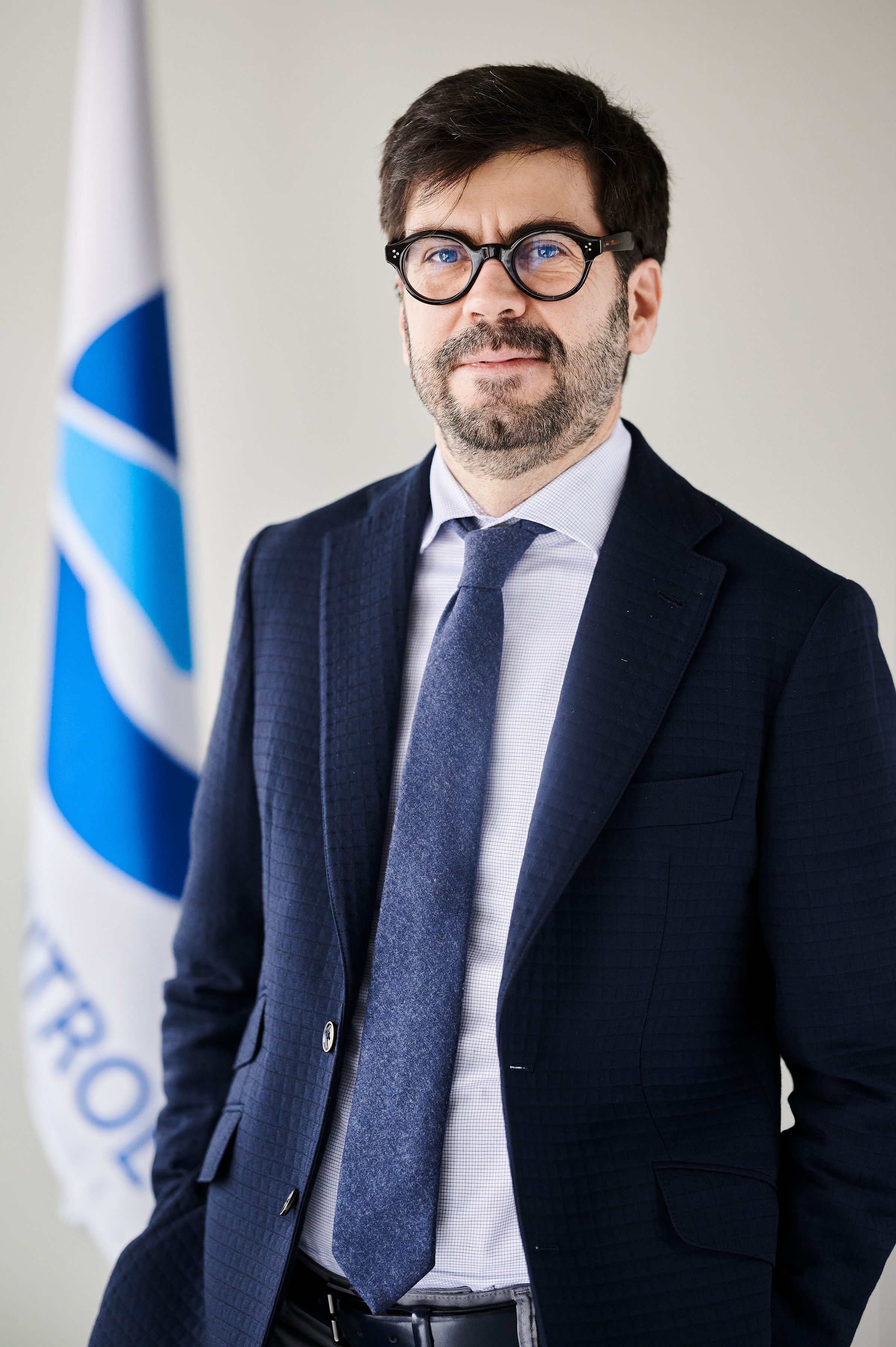Roma, 20 December 2023
Interview with... Raul Medina Caballero
Director General of Eurocontrol
[Cleared n°10 - anno XX - November/December 2023]

The European aviation is still facing challenges related to post-Covid and more recently the Russian aggression to Ukraine and the developments in Israel. What is the role of Eurocontrol in supporting aviation in this phase? What is your view on the future of aviation in the longer term?
Aviation is indeed facing huge challenges. The war in Ukraine has added extra complexities for the rest of the Network, with many more military flights and also with rerouted flights putting extra pressure on certain areas, such as the southeast of Europe. The Network is also facing a massive capacity challenge, with up to 16 million flights a year expected by 2050 – 50% more than this year. Complexity is also set to increase, with new entrants such as drones, high altitude operations and space launches – and also new aircraft types, for example with electric or hydrogen-based propulsion. These new forms of propulsion are in response to the target of NetZero by 2050 – which is a huge challenge on its own. EUROCONTROL is fully committed to helping to achieve that goal – as well as to helping aviation respond to the effects of climate change, such as high temperatures, wildfires and storms. This means taking action for the short, medium and long term. The EUROCONTROL Network Manager plays a major role in ensuring that we adopt a Europe-wide, network-centric approach to the capacity challenges, working with our partners, both civil and military, to optimise performance. Looking longer ahead, ATM and aviation need to innovate in order to meet the challenges. EUROCONTROL has always seen innovation as being essential. That’s why we are a founding member of the SESAR Joint Undertaking – now the S3JU. And of the 35 research projects selected by the S3JU, we are leading nine and actively contributing to 26 – as well as offering our simulation facilities for the validation of the new concepts of operation that will be developed.
You have recently launched a new strategy “Raising the bar”, could you elaborate on its key content and objectives?
This strategy, which I launched soon after taking office at the beginning of 2023, is aimed at taking European aviation to the next level, moving fully into the digital era, meeting the challenge of efficiently managing traffic growth and taking a leading role in supporting the transition to green aviation. In this, we are building and expanding on what EUROCONTROL has already achieved. Raising the Bar is based on three main pillars: technology, engagement and people. It has ten strands, each with specific objectives and deliverables. These include Supporting Ukraine, Aviation Intelligence + (building on our extensive data/analysis capability) and Network Transformation 2030 – in which we focus on transforming the Network Manager through the iNM programme. We have already successfully moved to our new Operation Centre and the coming years will see a progressive series of upgrades to our systems, all with the aim of improving the Network’s performance. Other strands include Innovation 2030, CRCO 2.0 and Flying Green – as well as internally-facing elements on budget and staff.
The ANSPs, together with the other operational stakeholders play an important role in the activities and also in the governance through the consultative bodies. What is your view of the role of ANSPs in Eurocontrol and more in general in the European aviation?
ANSPs are absolutely vital to EUROCONTROL, all the way through from helping to drive innovation, working with us on how change can be effectively deployed (for example, several ANSPs use our simulation facilities to test projects such as FRA), to the very close collaboration with the EUROCONTROL Network Manager. We have revitalised two key consultative bodies, where ENAV is active and well represented – the Civil-Military Stakeholder Committee and the Air Navigation Services Board – in order to improve our engagement with stakeholders. We are also working closely with the ANSB Working Group on important projects such as the move of the EUROCONTROL Innovation Centre to Paris-Saclay. Europe is unique in having so many ANSPs in one area handling so many flights. That can only happen if everyone works together. EUROCONTROL provides the common ground required and we have seen a much greater awareness of, and acceptance of, the need for a network approach. Without this network approach, we would not have got through this summer. We have to build on this and do even more. For example, next summer we’ll be putting even more effort into a joint, cross-border response to weather events. I’m convinced that the close collaboration between EUROCONTROL and the ANSPs can help take us to the next level and reach new levels of performance – something that will help to reduce aviation’s impact on the environment, benefit passengers and bring positive benefits to all parts of the aviation value chain.


